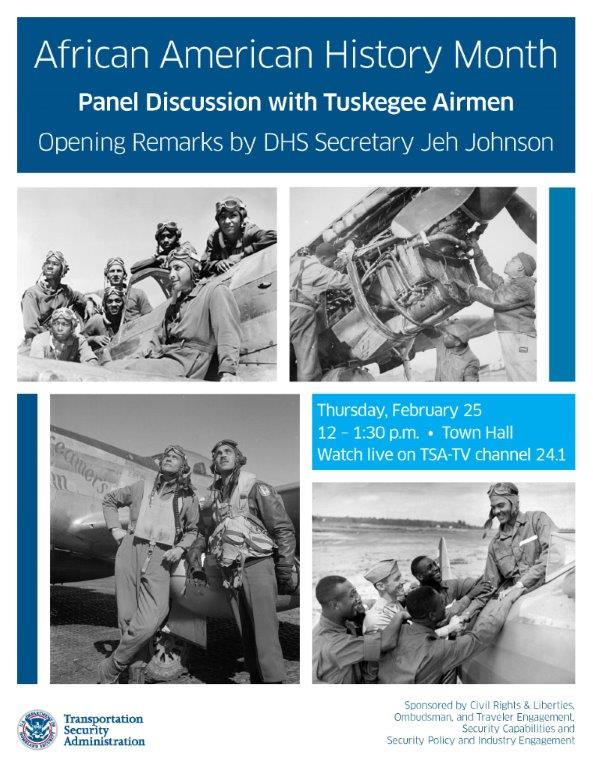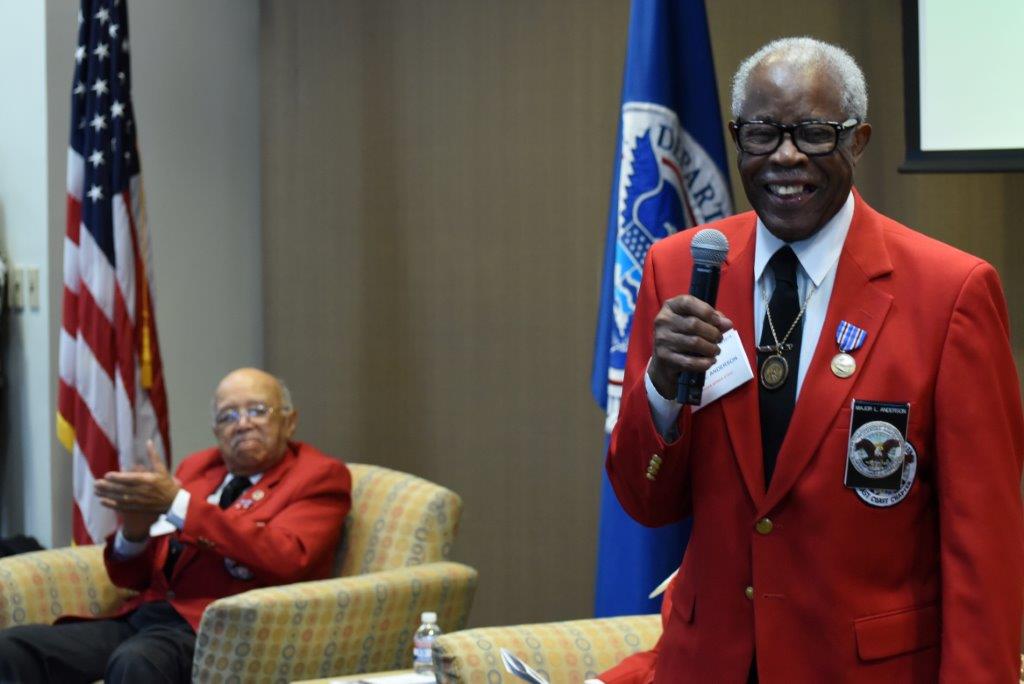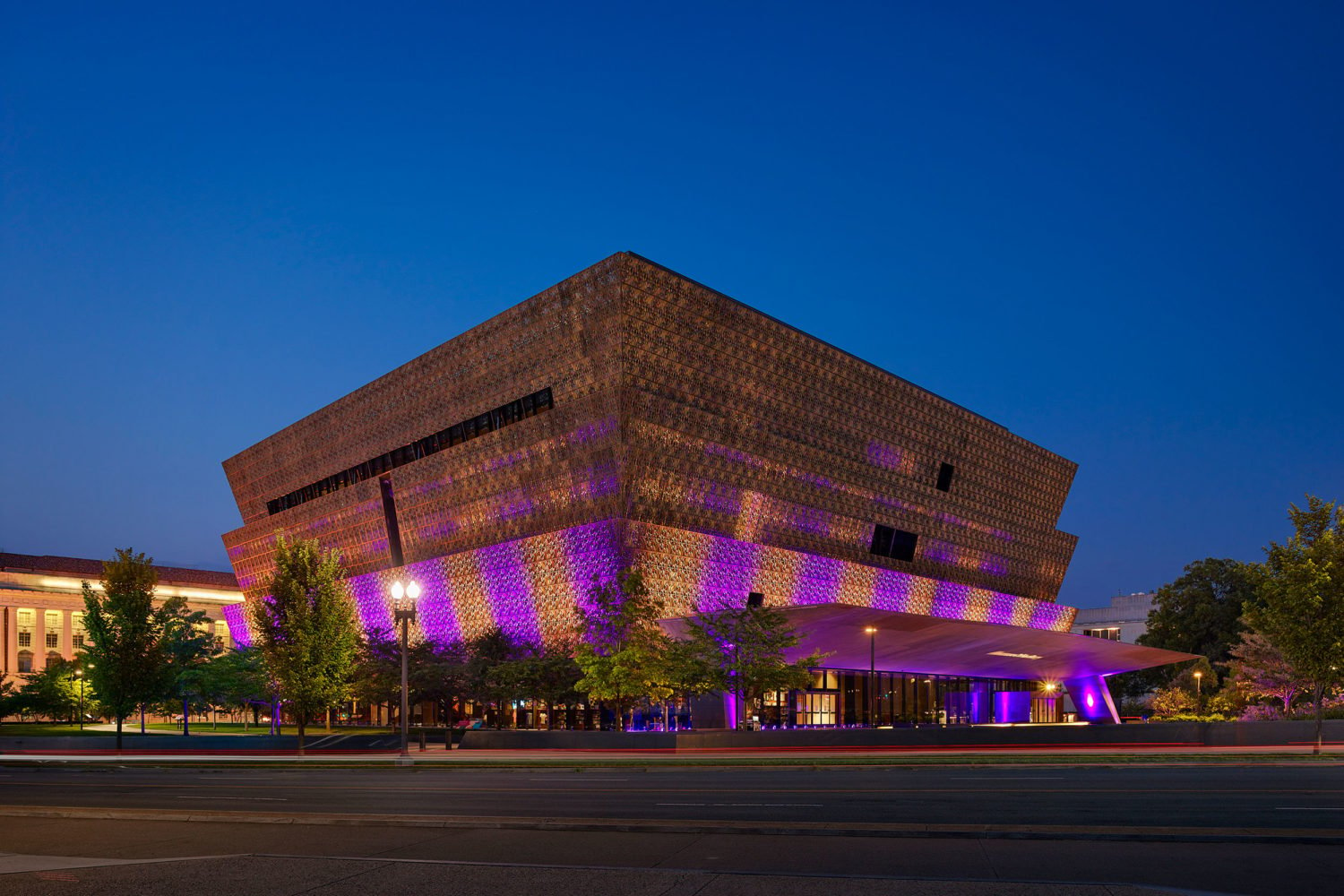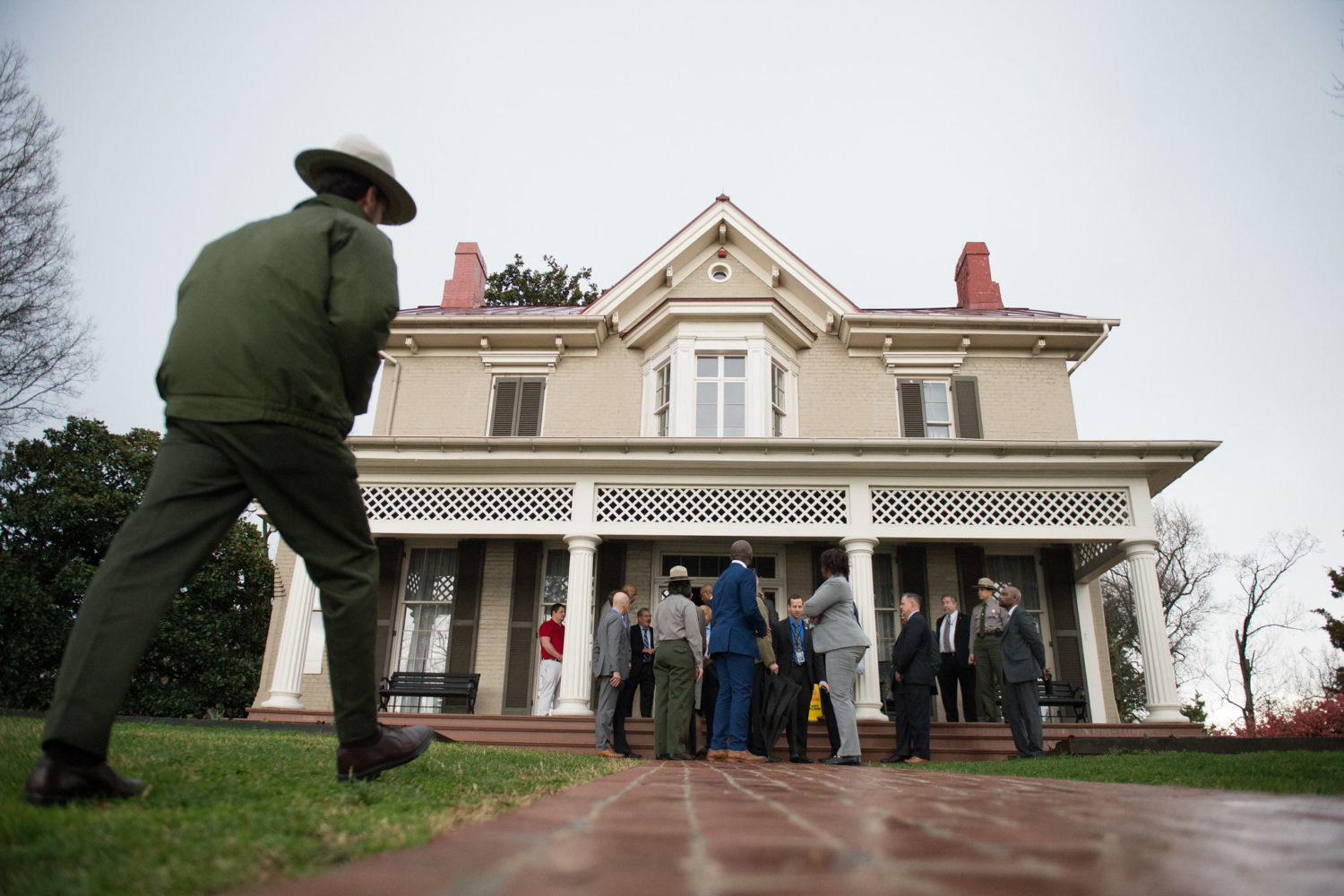Midway through a panel discussion about the Tuskeegee Airmen of World War II in Arlington last week, an audience member raised a question: How could these men continue fighting for a country that viewed them as second-class citizens due to their race?
“At the end of the day, it wasn’t about race,” Colonel Charles E. McGee replied. “We never allowed our circumstances to justify our determination. I had a moral obligation to uphold, one to myself, to my family, to God. This was about morality, truth, service, kindness, patience…it wasn’t just race.”
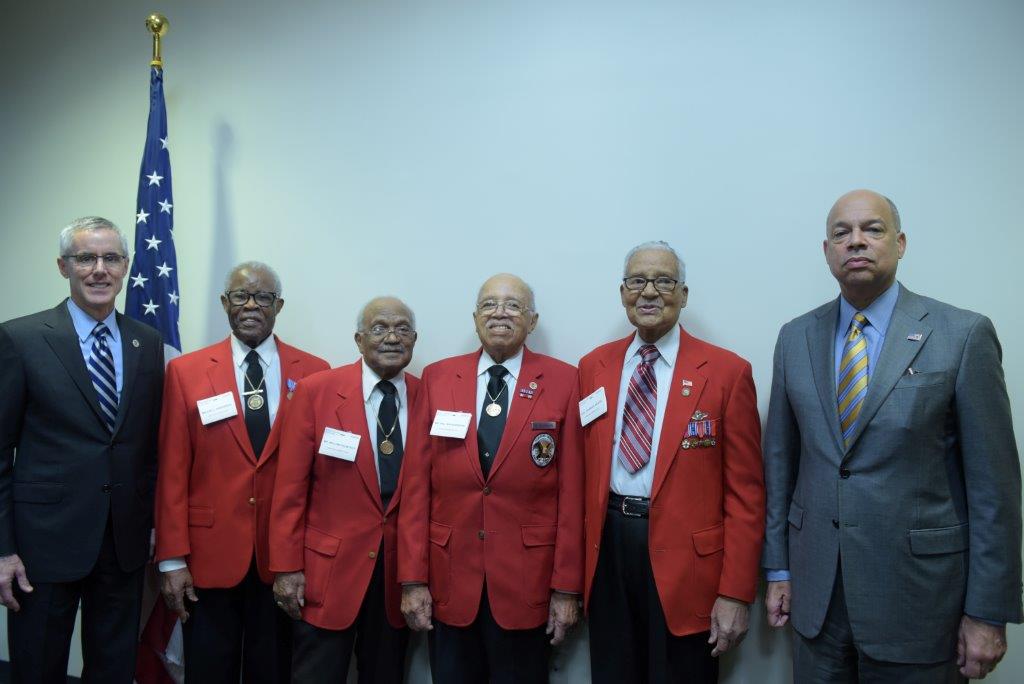
The event, held at the Transportation Security Administration’s Arlington headquarters, was called “Hallowed Grounds: Sites of African American Memories.” McGee, Aircraft Maintenance Technician Major L. Anderson, and Aviation Cadets William T. Fauntroy, Jr. and Walter K. Robinson shared their memories of perseverance, dedication, and triumph.
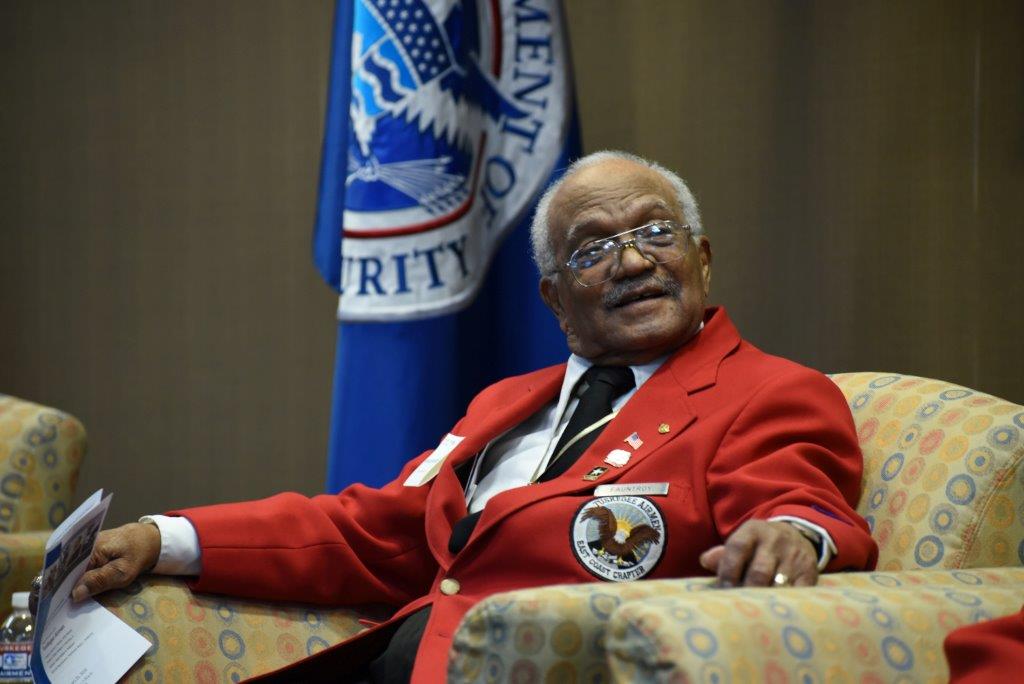
The story of the Tuskegee Airmen, African-American men who joined the US Air Forces as military pilots to fight during World War II, is more than just black history; it is American history. Although it is easy to focus solely on race while reading these men’s stories, they’ll assure you that the themes of their history are much greater.
“At the end of the day, I am an American citizen. This is my home, and I was just honored to serve and protect my home,” said Robinson, who noted that despite the obstacles the airmen faced due to race and technical training (many of them had not even learned to drive a car before they were brought in for training), the one thing that always kept them going was perseverance and leaving their mark for the betterment of American history.
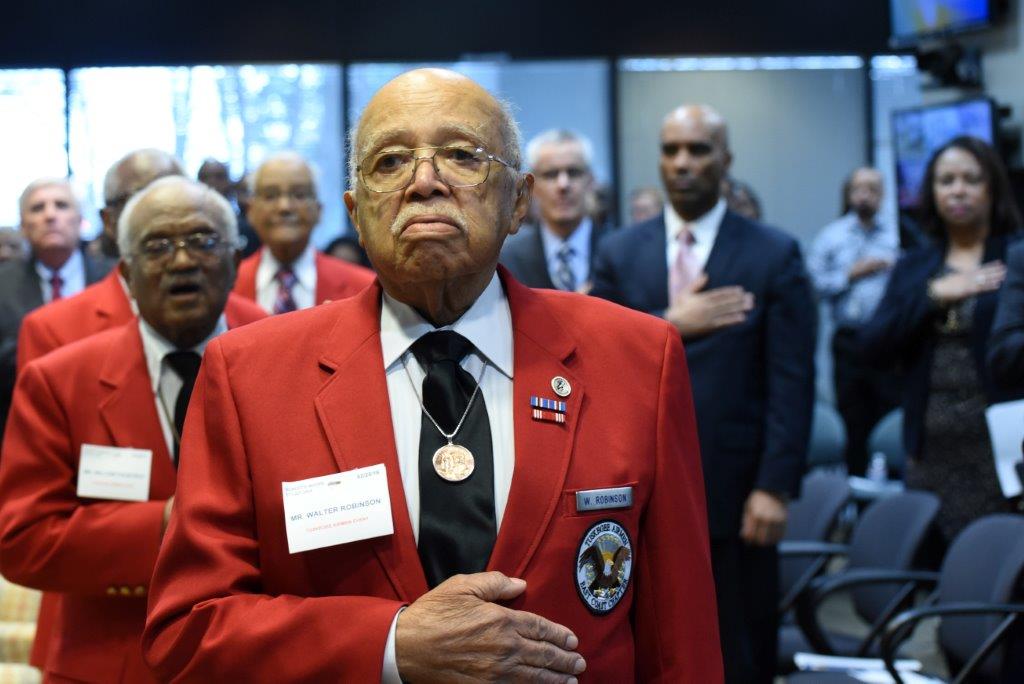
At a time when many people of color didn’t have the educational backing to solidify certain jobs, opportunities like the military offered new avenues of economic prosperity. “At that time, we had just got out of an economic depression, we were just happy to even have jobs” Colonel McGee said.
“Blacks in the Civil War suffered even more than blacks in the Second World War, but that’s the point. It’s about overcoming adversity, perseverance and tenacity in the face of a country that was against you,” historian William Holton added. “This is a story that will live on forever, a continuous treadmill that you’re on. If you look at the level of education and opportunities that African-Americans have obtained over the past years, you’ll see that things continue to open up. Stories like this continue to encourage people to try, to work harder, to excel in circumstances that are not necessarily ideal, because that’s how you make things change.”
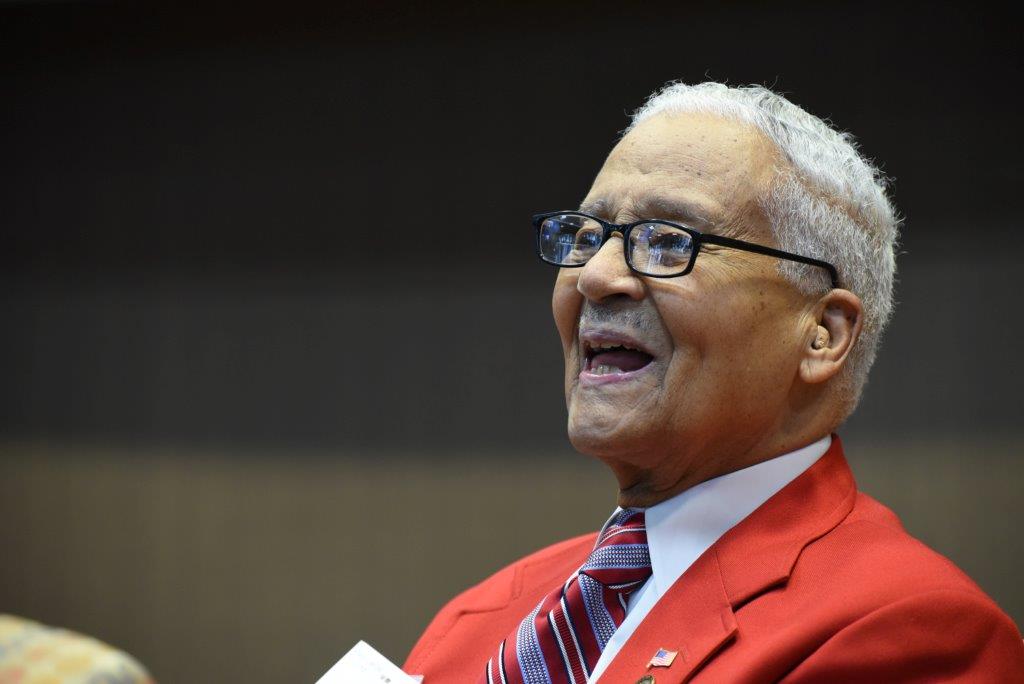
Even now in their 80s and 90s, the Tuskegee Airmen of World War II still exude a sense of playfulness and cheer as they reflect on times before and their current mark on history, left by their resilience in the face of adversity and courage despite the odds against them.
“The story of Tuskegee Airmen is a story of hope, tenacity, and the more your mind clears of hatred, the better you can concentrate on a profession that requires hard work on your part, but it shows that if everyone else can do it, you can as well.” Holton said.
Their story teaches us all that despite the obstacles that may come, one’s perseverance always has the capability to change the circumstances around. That’s a story we can all stick to.
